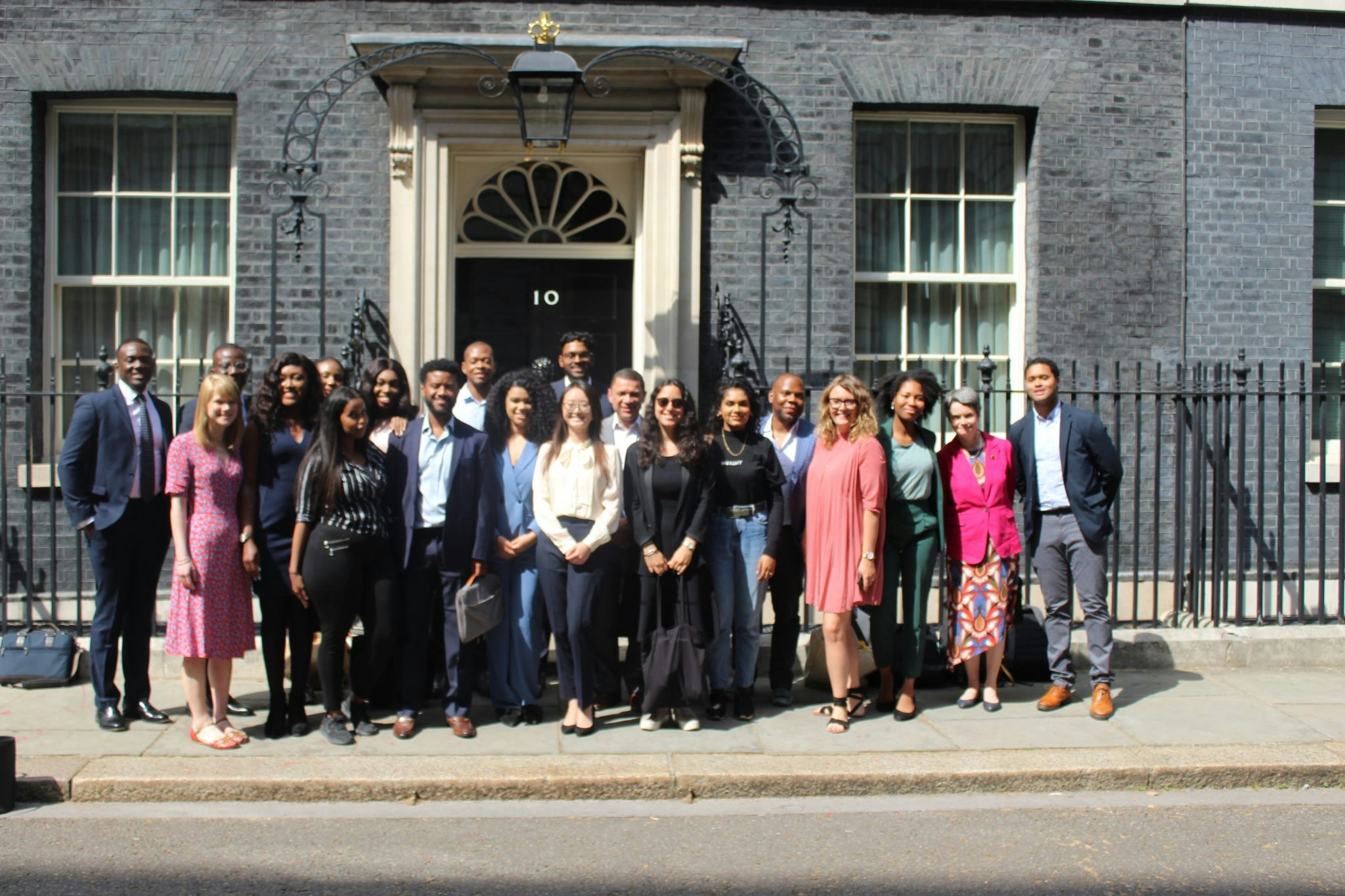This article is part of Scale Up Europe, an initiative with 150+ innovators brainstorming how Europe can propel its startups to the next level. To frame the debates, Sifted is exploring the region’s most pressing and strategic questions in a series of stories. Read the full report here.
Entrepreneurship isn’t equally accessible to everyone, and neither is a career in tech. And while the situation isn’t specific to Europe, it is a problem the region needs to tackle with more gumption.
Despite efforts in recent years aimed at improving the diversity of entrepreneur profiles and talent at startups, young white men from privileged backgrounds are still over-represented. So are Europe’s capital cities, and its best-known engineering schools.
To deploy its full innovative potential, Europe needs to go beyond just giving rise to startups that reflect the interests and abilities of a select few.
Europe has boosted investments in its startups as well as getting smaller companies and bigger corporates to work together more and more.
Now, the region’s entrepreneurship and technology ecosystem needs to broaden its talent pool.
There’s no question about the quality of tech talent in Europe today. The continent has demonstrated its ability to spawn some of the world’s most qualified candidates in fields including science and engineering, and even attract some of the brightest to entrepreneurship (for more on this theme, read the related article about Scale Up Europe’s deeptech discussions).
But the more startups and technology come to symbolise potential for Europe’s future — hope that it can spawn the next technological breakthrough, upgrade its economy for the digital age, create jobs and have a voice on the global stage — the more the innovation ecosystem needs to become diverse and inclusive. The more it is also pressed to tap new profiles to feed its progress.
On that front, the current situation is reason to worry.
The problem
Last year, 85% of startup funding went to all-male founding teams.
But what’s perhaps worse is that in looking at deals by gender composition of founding teams over time in different European countries, Atomico has noted there’s barely been any change at all for several years. Progress on gender diversity in European tech stagnated in 2020, it said.
Furthermore, data showed that people from less privileged backgrounds were less likely to become entrepreneurs, and 81% of founders surveyed said they’d been living comfortably before they set up their startup.
Black founders made up only 1% of the 1.2k entrepreneurs Atomico surveyed last year, and 2% of this year’s respondents.
It’s clear at this point that if Europe is to turn its cities into global talent hubs capable of rivaling Silicon Valley, it needs to show it can mobilise a wider array of candidates to stimulate innovation.
There are now more than a hundred diversity in tech communities across Europe trying to tackle that problem. Governments have also contributed. France for instance has made a push to attract foreign tech talent by facilitating the administrative process for candidates to get a work permit and setting up a separate fast-track — a plan dubbed “French Tech Visa”. The government has also set up a digital training scheme in 2015 called Grande École du Numérique and the French Tech Springboard (or “Tremplin”) to cultivate talent from diverse backgrounds.
As Covid-19 speeds up the transition to remote work for millions of employees across Europe, countries across the region have an opportunity to tap talent from Berlin to Madrid or Warsaw. Furthermore, the rise of nomad workers also facilitates access to a broader pool of candidates.
What’s at stake
At the microeconomic level, there’s an abundance of research highlighting how more varied teams make better decisions at companies, and generate better returns among investors.
But the real issue at hand spans much larger. Startups have a chance to expand reach beyond their delimited bubble by acting as key job creators and talent enablers.
There’s macroeconomic value for Europe to grab in unlocking the employment market to a bigger variety of candidates — and startups and the technology sector can contribute to this broader purpose.
By giving access to tech jobs and entrepreneurship to a more diverse workforce, startups are faced with an opportunity to integrate talent that has too often been overlooked, and create value on the back of it.
In doing so, they would seize a chance to address a much broader social and political issue that universities, big corporations and other parts of European society have broadly failed at.
Impact goal
As part of the Scale Up Europe initiative, participants will be in charge of coming up with an actionable plan aimed at broadening the talent pool that the startups and technology ecosystem can tap in Europe.
Part of that is geared towards attracting international candidates.
Another part involves giving access to a broader range of profiles, as well as promoting diverse teams at all levels and within all teams in companies.
Key themes for discussion
Here are a few of the themes that will be discussed by participants.
- Diversity and inclusion, broadly: How Europe can improve at making entrepreneurship and tech jobs more accessible for candidates from different backgrounds.
- Female founders: How to get more women in leadership positions and more money into startups founded by females.
- Minority ethnic founders: How to set positive milestone precedents and make sure these founders get the attention they deserve.
- 'Ivy league' bias: How to better spot and support entrepreneurs who come from underprivileged backgrounds.
- Foreign talent: What are Europe’s unfair advantages to attract talent and how can it deploy them (education, healthcare, or even positioning purpose as a driver to attract candidates...).
- Talent mobility and nomad workers: How to facilitate mobility and remote work, including in an administrative sense.
What is Scale Up Europe?
Scale-Up Europe gathers a select group of 150+ of Europe’s leading tech founders, investors, researchers, corporate CEOs and government officials around the same goal: accelerate the rise of global tech leaders born in Europe, in the service of both progress and technological sovereignty.
Initiated by President Emmanuel Macron, the Scale-Up Europe initiative focuses on four key drivers: talent, investment, startup-corporate collaboration and deeptech.
The founding members will kick off a collective debate on these themes on the 4th of March and continue the discussion in the coming months through workshops and open consultation. Together, the tech community will define an actionable strategy and roadmap to be presented to European heads of state later this year on scaling the tech ecosystem to the next level.
Ecosystem partners for this initiative include Sifted, as well as La French Tech, Viva Technology, Hello Tomorrow and Station F.
Further resources
- For more on Scale Up Europe, read our introduction and visit the event page.
- For more on talent, read Sifted’s coverage of diversity issues and startup life, and consult our listing of diversity initiatives in Europe.
- For in-depth analysis about European startups, read the latest Sifted Intelligence report, focused on the French tech ecosystem.



